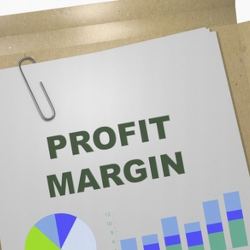Last Updated on 2025-03-25 by igamingdirect
Bookies always win. That’s what most people say. The truth is that they do. Bookies do make a profit whether players win or lose. So, how much profit do bookies make? To know the answer, you should first see the math behind the science of bookmaking. Also, you need to under the technique bookies use to ensure they have the advantage.
To grasp the essence of a bookie’s profit model, you must first comprehend the concept of the “vigorish,” colloquially known as the “vig” or “juice.” This is the commission the bookie charges on each wager, typically ranging from 5% to 20% of the bet amount. The amount the bookmaker will charge will vary depending on the sport and on the bet itself and as a way for sportsbooks to increase the number of wagers on a specific side of a bet. last but not least, ut’s the primary source of revenue for bookies, ensuring they maintain a built-in edge over bettors.
Furthermore, bookies employ intricate strategies to balance their risk exposure. Their goal is to attract players to wager on both sides of the line by carefully adjusting odds and limits. Regardless of the outcome, they pocket the vig from losing bettors, effectively generating profit.
Factors that Affect Bookies’ Profits
While the vig provides a foundation for bookies’ earnings, several factors can significantly influence their profitability. Here are some key elements that play a pivotal role:
 The volume of bets: The sheer volume of wagers placed with a bookie directly impacts their potential profits. Higher betting activity translates to more opportunities to collect the vig, thereby increasing revenue streams.
The volume of bets: The sheer volume of wagers placed with a bookie directly impacts their potential profits. Higher betting activity translates to more opportunities to collect the vig, thereby increasing revenue streams.- Odds management: Bookies meticulously manage their odds to ensure a balanced book. By adjusting odds in response to market conditions and betting patterns, they can minimize their exposure to substantial payouts and maximize their vig collection.
- Betting limits: Bookies impose betting limits strategically to mitigate risk. They can control their potential losses and maintain a more predictable profit margin by capping the maximum wager amount.
- Operating costs: Like any business, bookmaking operations incur various expenses, such as staff salaries, technology infrastructure, licensing fees, and overhead costs. These expenses can significantly impact a bookie’s bottom line and must be carefully managed. If you want to reduce your operating expenses, use a sportsbook pay per head.
How Much Profit Do Bookies Make – An Example
Calculating a bookie’s precise profit is a complex endeavor involving numerous variables and proprietary information. If you want to calculate how much bookies make, here’s a simplified example to give you an understanding of it.
 Let’s assume a bookie handles $100,000 worth of wagers in a given week, with an average vig of 10%. In an ideal scenario, where the bookie achieves a perfectly balanced book (equal action on both sides of each wager), their gross revenue would be $10,000 (10% of $100,000).
Let’s assume a bookie handles $100,000 worth of wagers in a given week, with an average vig of 10%. In an ideal scenario, where the bookie achieves a perfectly balanced book (equal action on both sides of each wager), their gross revenue would be $10,000 (10% of $100,000).
From this gross revenue, the bookie would need to deduct its operating costs, which can vary significantly depending on the scale of its operation. For this example, let’s assume its weekly operating expenses are $5,000.
In this scenario, the bookie’s net profit for the week would be $5,000 ($10,000 gross revenue—$5,000 operating costs).
However, it’s important to note that this calculation represents an oversimplified scenario. In reality, bookies face constant fluctuations in betting patterns, odds adjustments, and potential imbalances in their books, which can significantly impact their profitability.
In addition, that was just a conservative estimate. According to sportsbook pay per head reviews, most players don’t win 50 percent of their bets. Usually, they lose sixty to seventy percent of their wagers. That means a player loses six or seven out of their ten wagers.
Strategies to Increase Bookies’ Profits
As a bookie, maximizing profitability is a constant pursuit. Here are some strategies that can potentially improve your sportsbook’s earnings:
- Leverage advanced technology: Invest in reliable software solutions and tools to gain insights into betting patterns, optimize odds management, and streamline operations for increased efficiency.
- Expand your customer base: Actively market your services and explore new customer acquisition channels to increase the volume of bets handled, thereby boosting your vig collection.
- Offer diverse betting options: Cater to a wide range of sports and betting markets to attract a broader player base and diversify your revenue streams.
- Implement effective risk management: Monitor and adjust your betting limits, odds, and exposure to mitigate potential losses and maintain a healthy profit margin.
- Explore strategic partnerships: Consider collaborating with other industry players, such as pay-per-head (PPH) service providers, to access additional resources, expertise, and cost-saving opportunities.
Remember, the path to profitability in the bookmaking industry involves balancing managing risk, optimizing operations, and providing an exceptional betting experience for players.
If you’re a bookie aiming to boost profits, consider partnering with a reliable pay-per-head (PPH) service provider. These specialized platforms offer advanced tools, real-time data analytics, and comprehensive risk management solutions tailored for the sports betting industry. Leverage their expertise and advanced technology to gain an advantage and find new growth opportunities. Explore the best sportsbook pay per head of 2025 and read unbiased reviews to find the perfect partner for your bookmaking business.
The Lucrative Business of Bookmaking and its Profitability
The world of bookmaking is both a highly lucrative and an intricate business. Bookmakers operate in a competitive environment where the potential for significant profits exists, but the path to success is filled with complexities. While the specific profit margins are typically closely guarded secrets, industry insiders acknowledge that effective bookies can earn considerable income.
 Successful bookies achieve this by expertly managing their operations, which involves setting accurate odds, monitoring betting patterns, and minimizing their own risk. Additionally, they capitalize on the vigorish, commonly known as the “vig,” which is the commission charged to bettors. This carefully balanced approach allows them to thrive in a business that requires keen analytical skills and strategic thinking.
Successful bookies achieve this by expertly managing their operations, which involves setting accurate odds, monitoring betting patterns, and minimizing their own risk. Additionally, they capitalize on the vigorish, commonly known as the “vig,” which is the commission charged to bettors. This carefully balanced approach allows them to thrive in a business that requires keen analytical skills and strategic thinking.
Achieving profitability in the sports betting industry is far from automatic. It demands a comprehensive understanding of the intricate dynamics involved, including analyzing factors such as sports betting odds and wagering patterns. Effective risk management strategies are crucial for bookies, as they need to balance the odds to minimize potential losses while maximizing profit opportunities. Moreover, the market for sports betting is continuously evolving, influenced by technology, regulatory changes, and shifts in consumer behavior.
To thrive in this competitive landscape, bookies must be agile, adapting their approaches based on real-time data and emerging trends. This might involve utilizing advanced analytics to predict outcomes better, adjusting betting lines, or identifying profitable betting markets that others may overlook. By refining their strategies and remaining vigilant about environmental changes, bookies can maintain a significant advantage over competitors and ensure long-term success in the industry.




